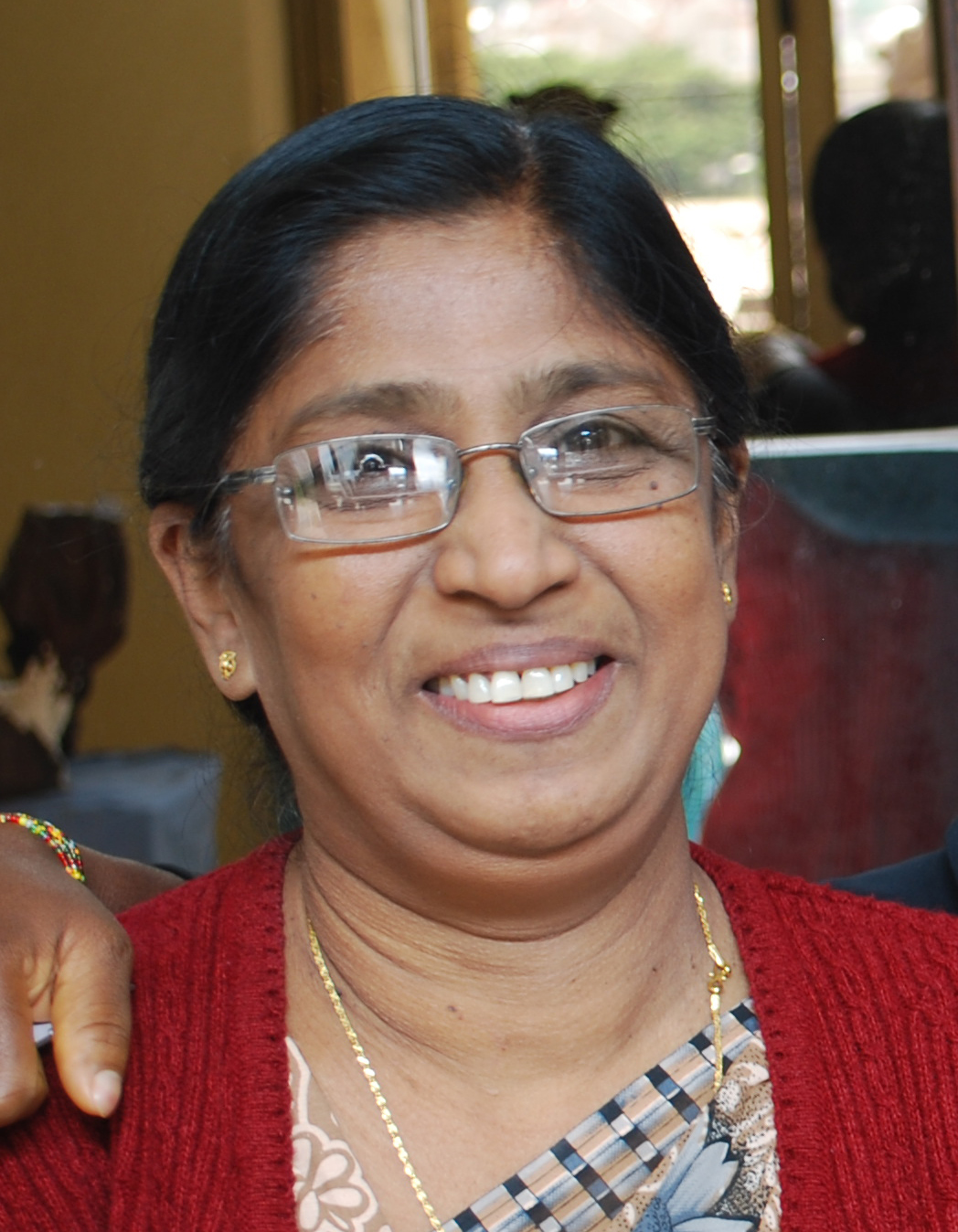Global Communion and Why It Matters: Exploring our shared commitment to being a worldwide family
As Mennonite World Conference, we share a commitment to being a worldwide communion (koinonia) of faith and life. Together, we seek to be a fellowship that transcends boundaries of nationality, race, class, gender and language. Yet because of our diversity, each MWC member church brings a distinct understanding of the importance of global communion to its participation and investment in MWC.
The April 2015 issue of Courier / Correo / Courrier seeks to discern the variety of reasons why Anabaptist communities from around the world come together to form MWC. In the articles that follow, writers reflect on the question: Why does my local or regional fellowship need a global communion?
Strength in the Gathered
Recently, I had the opportunity to travel to all nine Mennonite/Anabaptist and Brethren in Christ conferences in India and Nepal. These conferences have congregations (including house churches) in mostly rural areas where the non-Christians significantly outnumber the Christians. Often, membership numbers are very low. The pastors are few in number and, due to geographic limitations and lack of sufficient resources, they are unable to visit with and provide spiritual nourishment for each member. As a result, many of these congregations have succumbed to a minority complex, with feelings of loneliness, fear, mistrust and even abandonment.
In this situation, it is difficult to know what it means to be a part of a larger family of God. Though these congregations are aware of the regional or national conference to which they belong, they have no sense of a global communion.
This reality led to my recent tour of the Indian and Nepalese conferences, which I undertook alongside a number of other global Anabaptist leaders: Madhukant Masih, the new director of the Mennonite Christian Service Fellowship of India (MCSFI), an inter-Mennonite agency that provides a forum for the nine Mennonite-related denominations in India to relate to each other for fellowship and in service to their society; Henk Stenvers, secretary of the Mennonite World Conference Deacons Commission; and César García, MWC general secretary. One goal of our tour was to share information on MCSFI and MWC and to explain the different roles and programs of each organization. Another goal – and perhaps the most important one – was to help each conference understand our global connectedness. We wanted them to understand that, through MWC, we are linked as brothers and sisters in Christ.
During our tour we noticed that very few people knew about MWC. (Those who did had attended the MWC Assembly in Calcutta in 1997.) We began our explanation with the local and moved to the global. We used statistics and photographs to explain the work of MWC and how it connects conferences around the world for fellowship, worship, witness and service. As we spoke, ears perked up. Eyes widened. Those who listened enjoyed learning that they belong to a much bigger family of God. By the end of each visit, local conferences wanted to know when the next visit would occur! Churches big and small desired to know more and experience greater fellowship with Christians around the world. Many expressed interest in participating in the One Lunch Offering that will be raised during the annual World Fellowship Sunday. Learning about the needs of people all over the world makes even the poorest church want to share whatever little they have.
Throughout India and Nepal, our churches desperately need to know what it means to be a peace church. MWC has provided the resources and training needed to achieve such an understanding. In October and November 2014, MWC co-sponsored (with MCSFI and Mennonite Central Committee) a series of workshops throughout our conferences aimed at strengthening Anabaptist identity. Around 500 pastors and leaders – including women and youth – benefitted from excellent teaching provided by global church leaders. (For more on these workshops, see the February 2015 issue of Courier News.)
The much-needed understanding of “peace with justice” is now becoming clearer in the context where our churches are located – a context of poverty, injustice and violence. Local church leaders have committed to extending the teachings provided in these workshops, sharing Christian truth and wisdom to a wider group of people in our conferences’ rural regions.
Another need in our conferences is fellowship. These churches’ “minority complex” has sometimes been a barrier to spiritual growth. Yet the feelings associated with this complex seem to disappear as church leaders and members discover the global Anabaptist community. Increasingly, these believers know that they are on a journey with brothers and sisters around the globe – a journey to know each other, struggle together and bring hope in the midst of hopelessness, injustice and violence.
Investment in the work of MWC has brought positive change to the minds, attitudes and actions of the churches. Those involved in local ministry must continue to do whatever necessary to grow this newfound sense of global communion. MWC creates the space in which diverse believers can come together to connect, learn and share. In such contexts, we gain a better understanding of how God is working among all people in all circumstances – an expanded understanding of God’s kingdom at work in the world.
 Cynthia Peacock is the MWC South Asia regional representative. She also chairs the MWC Deacons Commission. Prior to retirement in 2006, she served as a social worker with Mennonite Central Committee for 38 years.
Cynthia Peacock is the MWC South Asia regional representative. She also chairs the MWC Deacons Commission. Prior to retirement in 2006, she served as a social worker with Mennonite Central Committee for 38 years.